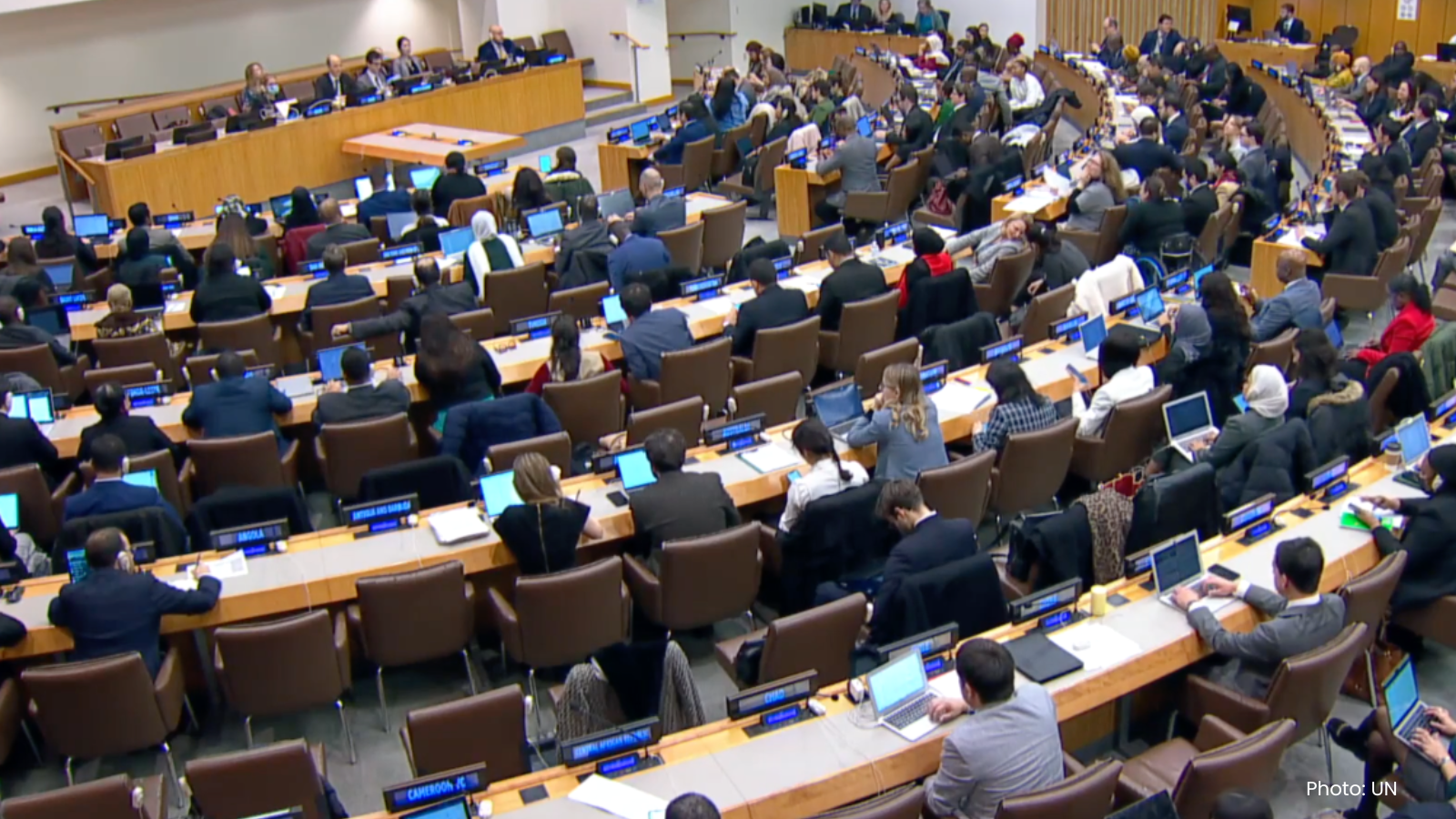Ahead of the International Year of Cooperatives 2025, which was proclaimed in resolution A/RES/78/175; the Permanent Mission of Mongolia to the United Nations, the Permanent Mission of Kenya to the United Nations, and the Committee for the Promotion and Advancement of Cooperatives (COPAC), have organized a side event at the Summit of the Future, to highlight how cooperatives are leading the way in democratizing science and technology, contributing significantly to SDGs and in particular Goal 10 on tackling inequality and Goal 8 on decent jobs for all.

Cooperative Futures: How Cooperatives Leverage Technology, Innovation, and Youth to advance the SDGs and Achieve the Future We Want
- Hosted by Mongolia, Republic of Kenya, and the Committee for the Promotion and Advancement of Cooperatives (COPAC)
- Friday, 20 September 2024, 10:00 – 11:15 (EDT)
- Register via Zoom.
CONCEPT NOTE:
The forthcoming Pact for the Future and its Annex, the Global Digital Compact, emphasizes the importance of equitable access to the digital economy – one that fosters innovation and entrepreneurship and increases the number of digital start-ups in developing countries. The Pact further recognizes that this potential can only be realized through international cooperation to harness the benefits of science and bridge the growing digital divides within and between developed and developing countries.
Cooperatives are people-centered enterprises jointly owned and democratically controlled by and for their members. They promote the fullest possible participation in the economic and social development of all people, including women, young people, older persons, persons with disabilities and Indigenous Peoples. Many cooperatives have integrated the sustainable development goals in their work programs and provide strong support to Members States efforts towards sustainable development.
Cooperatives harness the power of new technologies to improve business process and enhance benefits for their members. A leading example is the Mondragon Cooperative in Spain, a federation of 81 independent cooperatives employing 70,000 people. The Cooperative invests heavily in research and innovation, which it shares with other cooperatives nationally and internationally.
Ahead of the International Year of Cooperatives 2025, which was proclaimed in resolution A/RES/78/175; the Permanent Mission of Mongolia to the United Nations, the Permanent Mission of Kenya to the United Nations, and the Committee for the Promotion and Advancement of Cooperatives (COPAC), are organizing a side event at the Summit of the Future, to highlight how cooperatives are leading the way in democratizing science and technology, contributing significantly to SDGs and in particular Goal 10 on tackling inequality and Goal 8 on decent jobs for all. The event will highlight cooperation among cooperatives in research and development of new technologies that are shared nationally and internationally. It will also highlight new initiatives by Member States to strengthen capacities, particularly in developing countries, to conduct scientific research, and to adopt new technologies to improve capacities for sustainable development. These initiatives support the commitment of the Pact for the Future to “Strengthen North-South cooperation, South-South and triangular cooperation to build capacity for and improve access to science, technology and innovation, and to increase resources for the implementation of technical and scientific initiatives.”
The dynamic integration of young people in cooperatives is essential to securing the future of cooperatives and stimulating their adaptation and renewal in decision-making. Young people can help to introduce technological know-how, innovation, and a fresh perspective to cooperatives. Their energy and dynamism can support their growth and adaptation to new technologies. Moreover, there is a natural synergy between cooperatives’ values of self-help, self-responsibility, democracy, equality, equity, and solidarity and young people’s commitment to sustainability and social issues more broadly.
PROGRAMME:
Opening Segment: Moderator, Simel Esim, International Labour Organization
- H.E. Mr. Ankhbayar Nyamdorj, Permanent Representative of Mongolia to the United Nations (7 minutes)
- H.E. Mr. Ekitela Lokaale, Permanent Representative of Kenya to the United Nations (7 minutes)
- Mr. Jeroen Douglas, Director General, International Cooperative Alliance (7 minutes)
Panel Discussion: Moderator, Ilcheong Yi, United Nations Research Institute for Social Development
- Cooperatives, Youth and Technology: Tom Ivey, Community Development Manager, dot.coop (10 minutes)
- Opportunities for Youth in Europe: Francesca Martinelli, PhD. Director of the Centro Studi Doc Foundation (5 minutes)
- Opportunities for Youth in Africa:Salma Hachimi Alaoui, President of Innovtention Cooperative, Morocco (5 minutes)
- Opportunities for Youth in Asia-Pacific:Kishor Kumar, Chief Project Coordinator, ULCCS, India. (5 minutes)
- Opportunities for Youth in Latin America/Caribbean:Lucila Domínguez, Cooperativa de desarrollo digital, FACTTIC, Argentine Federation of Technology, Innovation, and Knowledge Work Cooperatives (5 minutes)
Interactive Discussion & Q&A: Moderator, Joseph Njuguna, International Cooperative Alliance (20 minutes)
Summary and Conclusion: UNDESA on behalf of COPAC (5 minutes)
About COPAC:
The Committee for the Promotion and Advancement of Cooperatives (COPAC) has its origins in the 23rd Session of the General Assembly of 1968, when the General Assembly requested the Economic and Social Council (ECOSOC) to consider the role of cooperatives in economic and social development. The current members of COPAC are the United Nations Department of Economic and Social Affairs, International Labour Organization (ILO), United Nations Food and Agricultural Organization (FAO), International Trade Centre (ITC), United Nations Research Institute for Social Development (UNRISD), and the International Cooperative Alliance (ICA).

